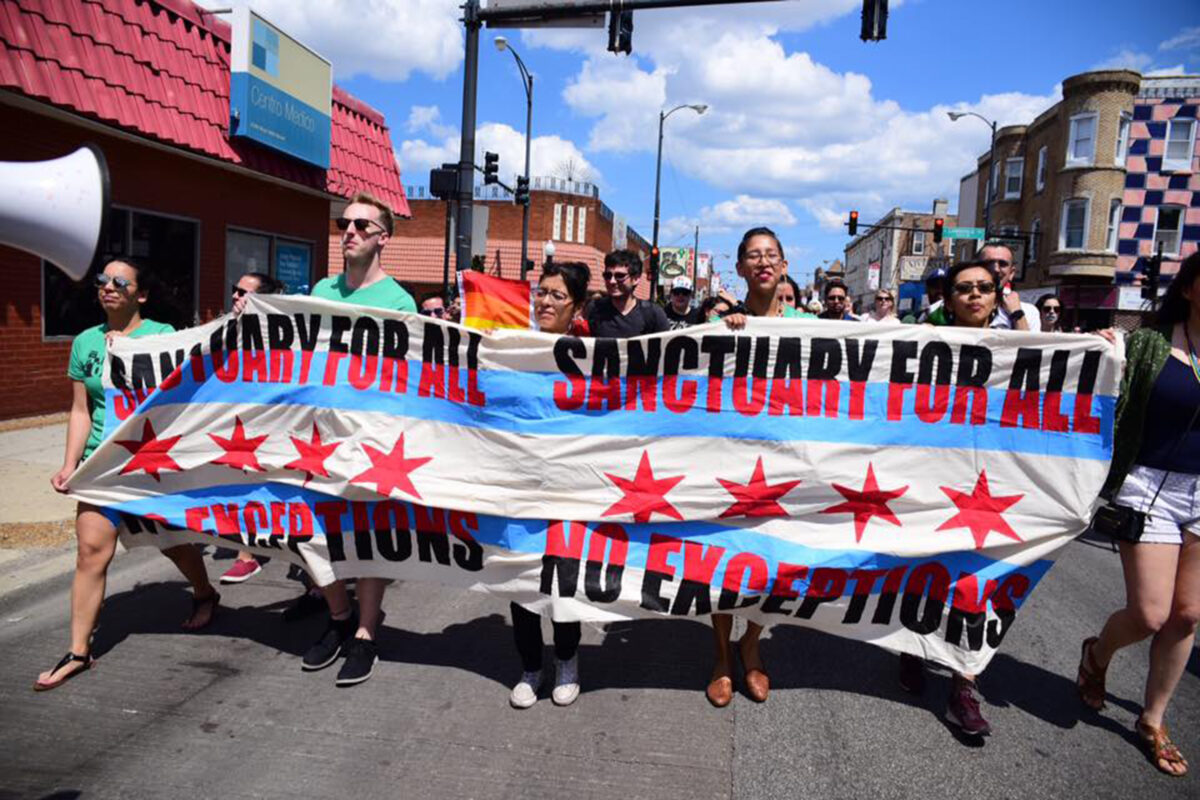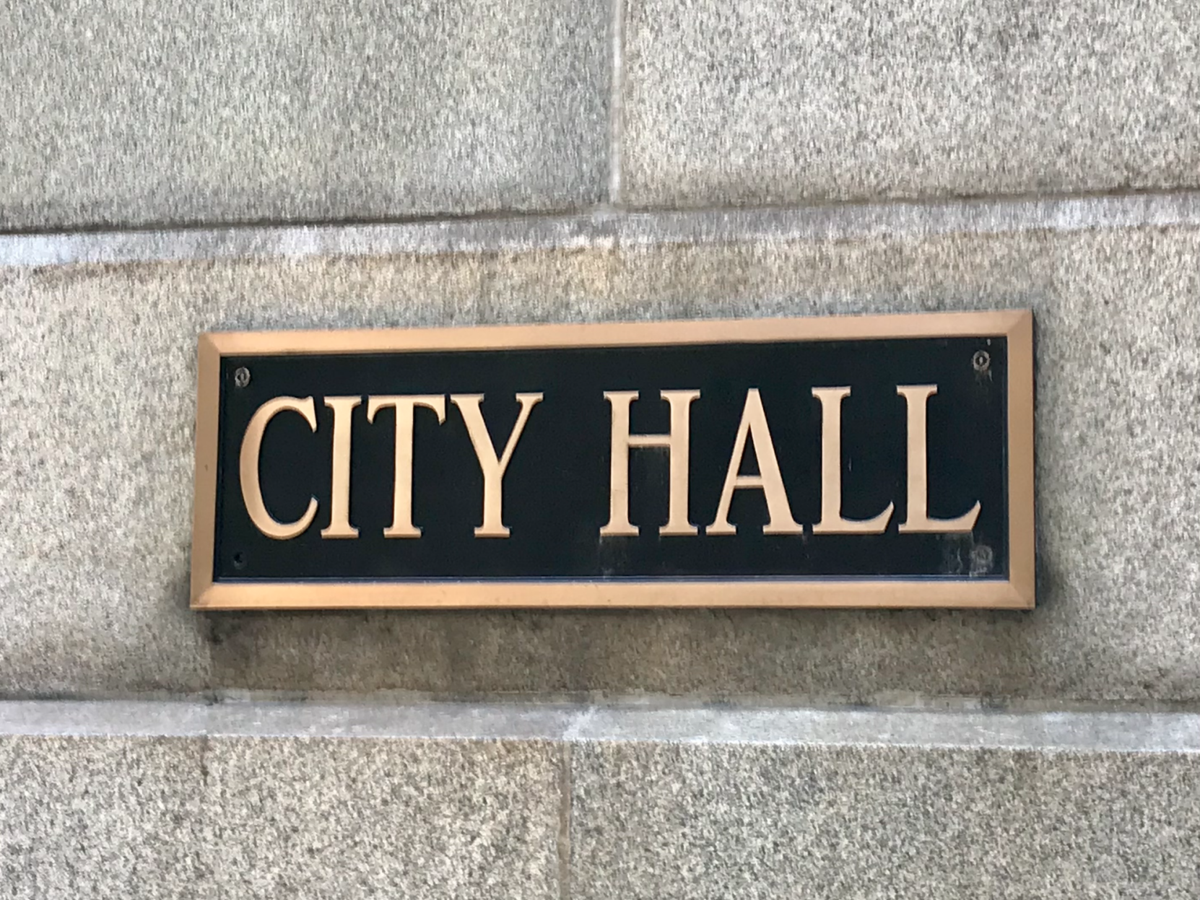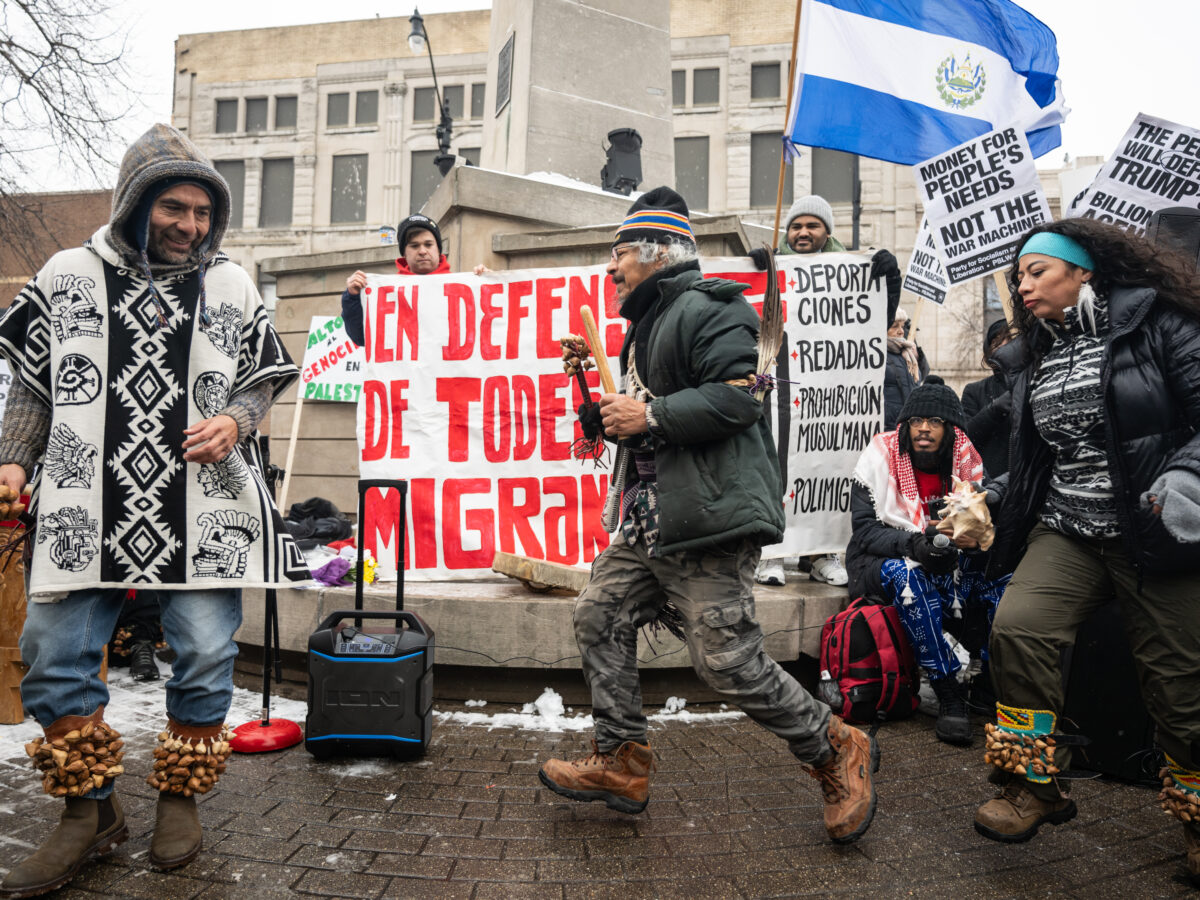This article was originally published by Borderless Magazine.
With President-elect Donald Trump taking office, organizations nationwide have been preparing for his hardline immigration promises with Know Your Rights workshops.
Immigration advocates hope to equip immigrants with critical information about their rights in light of Trump’s plans to carry out mass deportations and reinstate travel bans.
“When people are interacting with immigration agents, if they do so in the wrong way, they can get themselves in trouble — they can get arrested, they can say stuff that can set themselves up for deportation,” said Fred Tsao, senior policy counsel at the Illinois Coalition for Immigrant and Refugee Rights. “We want to make sure that people know what their rights are and feel comfortable being able to exercise them.”
Regardless of their status, all immigrants are entitled to certain rights and protections under the U.S. Constitution.
“Our U.S. Constitution, our Bill of Rights, guarantees rights to everybody [who is] in the United States,” Tsao said. “It’s not just citizens, it’s not just people who are born here. It’s not even just people who are legally here. It’s everybody.”
Trump’s Border Czar, Tom Homan, said the administration plans on reviving family detention centers and instating halfway homes for children of noncitizens. He also promised last month that the administration’s deportation plans will begin in Chicago.
Dulce Guzmán, executive director of Alianza Americas, emphasized the need for mental health services during this time of uncertainty. While informing immigrants of their rights is important, it can also generate anxiety and fear of what’s to come, she said.
“We’re in a waiting game,” Guzmán said. “But [we’re] making sure that we have the people, the resources, and most importantly that we stay grounded…because this is going to be a long next four years.”
Outside of Know Your Rights education, Tsao added that ICIRR encourages people to get involved in their communities — whether through a local organization, labor union or faith congregation.
“People are not alone,” Tsao said. “There are family members, institutions, organizations that can provide assistance, support and help.”
Borderless spoke with local immigrant leaders and immigrant rights organizations to compile this Know Your Rights guide. Read on to learn what rights you are entitled to here in Chicago, regardless of immigration status.
You Have The Right To Remain Silent
Under the Fifth Amendment of the U.S. Constitution, you do not have to speak with an Immigration and Customs Enforcement (ICE) agent, answer their questions, or sign any papers if they ask, according to the Immigrant Legal Resource Center.
The right to remain silent includes protections around “self-incrimination,” which means saying anything that may signal your responsibility or involvement in a crime. That means you have the right not to speak with an ICE agent. You don’t have to tell them anything about your citizenship status or what country you are from.
Anything you share with an immigration officer or federal official can be used against you in immigration court. If you choose to answer questions, know that lying to an immigration officer has permanent consequences that can bar you from citizenship.
If you decides to speak, immigrant rights groups recommend that you ask to talk to a lawyer or request to see an arrest warrant with your name.
You Have The Right To Walk Away From An Interaction With ICE
If you are stopped by an officer, you can ask whether you are being arrested or detained. If you are not being arrested or detained, you have the right to walk away from an interaction with ICE, according to Informed Immigrant, an immigrant resources organization.
If you are arrested by ICE, you can ask to call a lawyer, according to the American Civil Liberties Union (ACLU). You do not have to sign any documents without your lawyer present.
You Have The Right To Refuse To Be Searched
You can choose not to consent to being searched by ICE officials by saying: “I do not consent to being searched.”
ICE officials do not have the right to search you without your consent or probable cause, according to the ACLU. Probable cause means that an official must have a “reasonable” basis for believing you may have committed a crime, according to the Cornell Law School Legal Information Institute.
You Do Not Have To Open The Door If An ICE Official Is Knocking
Under the Fourth Amendment of the U.S. Constitution, you are protected against “unreasonable searches and seizures.”
This means ICE officials cannot search you or your home without your consent or a warrant signed by a judge. Some ICE officials may present warrants that are not signed by a judge, which do not grant them access to your home without your consent.
You Do Not Have To Sign Any Documents
You have the right to refuse to sign any documents presented to you by ICE.
United We Dream, a youth-led immigrant advocacy group, recommends you decline signing any documents ICE presents to you. Many groups recommend speaking to an immigration lawyer before signing any documents. This is because, in most cases, you have the right to a hearing with a judge to challenge your deportation. If you sign something called a “Stipulated Removal Order,” for example, you waive your right to that hearing, according to the ACLU.
You Have The Right To Hire A Lawyer
Under the Sixth Amendment, you have the right to consult with a lawyer for your immigration proceedings.
If you are arrested or detained by ICE or Border Patrol, you have the right to hire a lawyer, but the government does not have to provide one. If the police arrest you, you have the right to a government-appointed lawyer.
You have the right to have your lawyer with you at any hearing with an immigration judge.
Police Officers Are Restricted From Working With ICE in Chicago and Illinois
Under Chicago’s “Welcoming City” ordinance and the Illinois TRUST Act, the Chicago Police Department (CPD) cannot cooperate with ICE officials seeking to deport immigrants and CPD is not allowed to arrest someone based on their immigration status.
Under these policies, the Chicago Police Department is also prohibited from asking an individual about their immigration status or questioning, arresting, or prosecuting someone based on the suspicion of being undocumented.
You Have The Right To Take Photos In Public Spaces If You Have An Interaction With ICE
Under the First Amendment, individuals can take photos and record videos in public spaces.
United We Dream suggests ensuring photos and videos are synced to iCloud or Google Photos so a trusted relative or friend can access them if you record an interaction with ICE.
Other Resources
Many organizations in Chicago offer free or low-cost mental health services to immigrants and refugees facing fear or anxiety due to anti-immigrant policies and rhetoric, displacement, violence and more. While immigrant rights organizations advocate that knowing your rights are essential, they also emphasize the importance of taking care of your mental health at this time.
Borderless and the Coalition for Immigrant Mental Health have compiled guides for mental health services available to immigrant and refugee communities.
If ICE agents are conducting raids in your area, if you need help locating someone in ICE custody, or if you would like to report ICE activity, ICIRR has a hotline you can call at 1-855-HELP-MY-FAMILY (1-855-435-7693).
The hotline has operators who speak English, Spanish, Korean and Polish.
If you are looking for Know Your Rights information in your language, check out resources from these organizations:
- Spanish: The Resurrection Project
- Korean: National Korean American Service and Education Consortium (NAKASEC)
- Chinese: Coalition For A Better Chinese American Community
- Tagalog: AFIRE Chicago
- Arabic: CAIR-Chicago
- Urdu: CAIR-Chicago
NAKASEC also offers a free mobile app on the Apple Store that offers Know Your Rights information in 16 languages, including Urdu, Vietnamese, Thai, Nepali, and Hindi.
Borderless Magazine is reimagining immigration journalism for a more just and equitable future.




